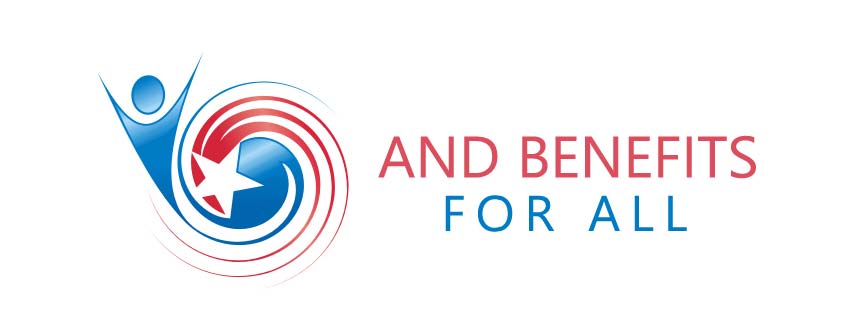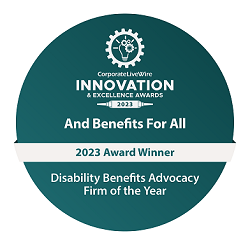And Benefits For All is well versed in many areas of laws relating to Federal and State Public benefits.
This is our specialty and our passion.
Helping individuals who need help applying or appealing benefits is something which we pride ourselves on and have fine-tuned all our processes to make sure that each of our clients have the very best chance at getting approved for benefits on their first attempt.
Disability is defined by the Social Security Administration (SSA) as the inability to engage in any substantial gainful activity by reason of a medically determinable physical or mental impairment(s) which can be expected to result in death or which has lasted or can be expected to last for a continuous period of no less than 12 months.
It is the applicant who is responsible and who has the burden of proving that they are disabled and unable to work for at least 12 months. It is not enough to simply allege you are unable to work, but must prove it by submitting objective medically acceptable evidence from a reputable medical source. We cannot emphasize enough that the development of evidence is crucial to winning your case. The SSA will hire medical and vocational experts to prove that you are able to work. The good news is that you are entitle to have an attorney at your side. The even better news is your attorney does not get paid unless you win!
The Social Security Disability Insurance (SSDI) program, and the Supplemental Security Income (SSI) program are the two federal programs designed to help those not able to work due to long lasting or permanent disabilities.
If you are disabled from performing Substantial Gainful Activities/Employment, you may be eligible for Social Security Disability Insurance (SSDI) or Supplemental Security Income (SSI) benefits.
DIFFERENCES BETWEEN SSDI AND SSI BENEFITS
Social Security Disability Insurance (SSDI) is the program under which those who have paid into the Social Security system can receive benefits. It is different that retirement benefits which is also offered by the SSA. SSDI is a form of insurance for those employed, and workers contribute to this fund through payroll deductions. There are no Asset/Resources limits for SSDI eligibility.
Supplemental Security Income (SSI), on the other hand, is a program for those with limited resources who have become disabled. It is a type of welfare program, like local General Assistance or Temporary Relief programs offered in each state. There are work requirements for SSDI, but none for SSI. This is intended to fill the gap for disabled persons who cannot meet the work requirements.
SUPPLEMENTAL SECURITY INCOME BENEFITS (SSI)
There are asset/Resource limits for SSI, but none for SSDI. There are strict residency and citizenship criteria. You must be both poor and disabled in order to be approved for Supplemental Security Income Benefits (SSI) benefits. In addition, SSI children’s disability benefits are paid to children 18 years old and younger who are disabled and whose parents or guardians are poor.
Social Security Disability Benefits (SSD)
Social Security Disability Benefits (SSD) are paid to disabled people who have reasonably stable work histories. Generally, SSD is available if you have been employed five out of the last ten years.
During your free no-obligation telephone screening, our team of trained Case Managers will ask you a series of questions in order to determine which program you are eligible for. In some cases, you may be eligible for both SSI and SSDI, and if you are we will file two (2) applications for you for both the SSI and SSDI Program.
Our specialty is helping disabled individual apply for Social Security disability benefits. Our track record is exceptional and the experience we offer is unmatched. Call 1-888-755-0077 today for your free screening and to see if you qualify. We are waiting to help you!








